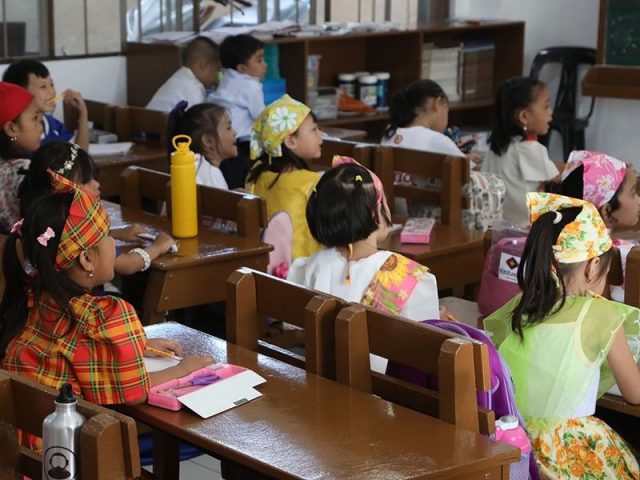
Kabataan Party-list criticized Republic Act (RA) 12027, or the measure that discontinues the use of the mother tongue in multilingual classes from Kindergarten to Grade 3, calling it a “step backward” to quality education.
According to the party-list, removing students’ mother tongue as a medium of instruction reflects the government’s “colonial mentality,” where fluency in English is regarded as a mark of intelligence.
“Sinusulong ng Kabataan Partylist na pagyabungin pa ang paggamit ng mga wika sa bansa, hindi lang sa mga paaralan kundi pati sa iba pang mga pampublikong institusyon gaya ng mga ahensya ng gobyerno,” its statement read.
“Makakatulong sana ito na tiyakin na nauunawaan ng ating mga kababayan ang mga konsepto na pinag-uusapan sa akademya at sa pamahalaan,” it added.
RA 12027 or the Act of Discontinuing the Use of the Mother Tongue as Medium of Instruction from Kindergarten to Grade 3, lapsed into law without the signature of President Ferdinand Marcos Jr. on October 11.
Under RA 12027, “the medium of instruction shall revert to Filipino and until otherwise provided by law, English.”
It amends the Enhanced Basic Education Act of 2013, which mandated the Mother Tongue-Based Multilingual Education (MTB-MLE) program to enhance comprehension and literacy among pupils.
The youth group called for sufficient funding to provide materials and training for teachers implementing mother tongue-based instruction.
Rep. Raoul Manuel (Kabataan Party-list) with Rep. Arlene Brosas (Gabriela Women’s Party-list) and Rep. France Castro (ACT Teachers Party-list) filed House Bill 564, which seeks to mandate a minimum of nine units of Filipino courses in the college curriculum to promote the country’s languages.
Sen. Win Gatchalian, the principal author of RA 12027, pointed out that the mother tongue policy has been in place for over a decade, but it has not been effective in schools.
“Mahigit sampung taon nang ipinapatupad ang mother tongue policy pero malinaw sa ebisdensya na hindi ito naging epektibo sa mga paaralan,” the senator said.
Palanca award-winning writer Jerry Gracio, a former commissioner of the Samar-Leyte Languages at the Komisyon sa Wikang Filipino, said it appears that the failures in education over the past decade are being blamed on the use of the mother tongue.
“Parang lumalabas na ang failure natin sa edukasyon sa nakaraang 10 taon ay dahil sa MTB-MLE-hindi ang kulang na classroom at school facilities, hindi ang overworked na teachers, hindi ang incompetence ng DepEd central office, o ang mababa pa ring budget sa edukasyon,” he said in a Facebook post.
Gracio said discontinuing the use of the mother tongue will not solve the country’s lag behind reading, writing, math, and science.
“Matagal nang sinasabi ng mga eksperto na mas madaling matuto ang mga bata ng reading, writing, science at math, kahit na ng ibang lengguwahe tulad ng English, kung mother tongue ang ginagamit na medium of instruction. Pero mukhang hindi nakikinig ang ating mga mambabatas,” he said.
“Dahil optional na ang paggamit ng mother tongue, malamang–at sa klase ng utak na mayroon ang marami sa ating mga edukador–ni hindi ito gagawing option. Etsa-puwera na naman ang mga katutubong wika sa ating mga klasrum.”



